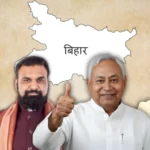Elon Musk Reacts to YouTube’s Reinstatement of COVID-19 Misinformation Bans: Controversy Heats Up
In a move that has been argued in social media and the tech world, YouTube recently restored its sanctions on Covid-19 misconceptions, inspiring responses from technical leaders, policy makers and the public. Among the most high-profile reactions, Tesla and SpaceX CEO Elon Musk, who expressed their strong views on the stage’s decision.
YouTube initially implemented strict guidelines during the peak of the epidemic to curb the misinformation related to the COVID-19 vaccines, remedies and viruses. The purpose of these policies is to reduce the spread of false or misleading information that can potentially endanger public health. However, in recent months, the platform has given rest to some of these rules, which has allowed some material to be allowed earlier. The latest restoration marks a return to the strict enforcement model.
Elon Musk’s response
Elon Musk took the X (East Twitter) to share its perspective, creating widespread discussion among its 150+ million followers. Musk criticized YouTube’s decision, called it “overbroad,” and warned that banning speech in this way could set a dangerous example for material moderation on the Internet.
- Elon Musk said that while public health is important, “the line between wrong information and discussion should not be blurred with the ban”.
- He suggested that the platforms should focus on labeling the disputed content instead, rather than removing it.
Musk’s comments quickly went viral, sparking a debate on thousands of retweets and social media platforms. Supporters praised him for advocating free speech, while critics argued that spreading Kovid -19 misinformation could lead to real-world consequences.
YouTube’s Position
YouTube defended its decision in a statement, emphasizing the public health argument behind restoration.
- The forum said the Covid-19 incorrect information vaccine may contribute to the proliferation of hesitation, unsecured treatment practices and viruses.
- YouTube clarified that the policy has been formed with guidance from health officials such as the World Health Organization (WHO) and the Centers for Disease Control and Prevention (CDC).
- The company also noted that the enforcement focuses on a material that can cause serious loss or death rather than general discussion or opinion.
YouTube CEO Susan Wojcicki commented in a press briefing:
“Our goal is to provide accurate information while protecting our community from materials that can harm public health. We understand that it is a complex balance, but our policies are directed by expert advice.”
Public and expert reactions
COVID-19 misinterpretation restrictions have been ignited by the debate in political and social lines.
- Free speech advocates argue that the strict enforcement of YouTube can prevent healthy debate and limit different opinions on epidemic management.
- Public health experts counter that misinformation has given rise to vaccine refusal and dangerous behavior, which requires such restrictions to save lives.
- Researchers at a major epidemic Institute of Epidemiology mentioned that online incorrect information contributed to reducing the rate of vaccination in many countries, emphasizing the responsibility of platforms such as YouTube.
On social media, Musk’s followers were divided into two camps:
- Those who support their advocacy for free speech are called “censorship overs”.
- Those who emphasize that health has fatal consequences of misinformation, especially during global crises such as an epidemic.
The Balance Between Free Speech and Public Safety
The ongoing debate underscores a broader issue facing tech companies worldwide: how to balance freedom of expression with the need to protect public health.
- Platforms like YouTube, Facebook, and Twitter have increasingly become the battleground for content moderation decisions.
- Striking the right balance is challenging because over-policing can be seen as censorship, while under-policing can lead to real-world harm.
- Experts argue that transparency in enforcement policies and clear labeling of disputed content could be a middle ground.
Implications for YouTube and Social Media
YouTube’s reinstatement and Elon Musk’s reaction are likely to have far-reaching implications for the digital ecosystem:
- Other social media platforms may reconsider their misinformation policies, either tightening restrictions or relaxing them, depending on user backlash.
- Regulators in several countries are watching these moves closely, considering legislation on online misinformation and platform accountability.
- Content creators and influencers may need to adapt their approach to posting health-related content, ensuring compliance while avoiding penalties.
Analysts suggest that platforms like YouTube must maintain a delicate balance: promoting credible information without alienating users who feel censored.
Looking Ahead
The COVID-19 epidemic has highlighted the power and impact of social media platforms in shaping public opinion. As the epidemic develops, there will be policies like YouTube.
The vocal criticism of Elon Musk combines another layer of complexity, especially among millions of followers. Will their attitude affects policy changes or public sentiment remains to be seen.
For users and material creators, the major take -out is clear: understand the platform rules, verify the information before sharing and attach responsibly with sensitive health subjects.
As the discussion continues, this debate highlights an important question for the digital age: how much power should private platforms have in public discourse, especially when public health is at stake?
Conclusion:
YouTube’s COVID-19 underlines the online restriction of misinformation and restoration of alone musc’s response to the freedom of speech and the ongoing information. While YouTube emphasizes public safety, Musk and free speech warn against excessive sensorship.
As the interaction comes out, it will shape how the platforms consume information to the platforms, how users consume information, and how governments interfere with the digital information ecosystem. The world must be closely watching as one of the most influential voices in Tech on this controversial subject.













